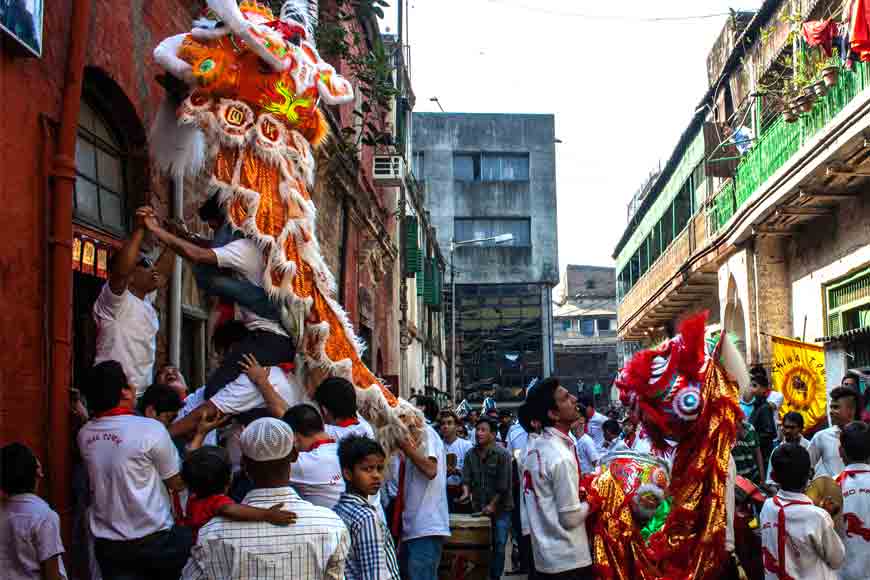Lost Chinese community of Kolkata

Kolkata and Chinese --- almost go hand in hand. Be it their food, or their shoes, Bengal has always embraced this community who had settled in Kolkata almost two centuries ago and had a thriving population once upon a time. But their dwindling population in the last few decades have almost made the Chinese community of Kolkata a lost race.

The Chinese principally ethnic Hakka from the provinces of Guangdong, Jiangxi and Fujian, have lived in Kolkata for at least 230 years, dating back to the time when the city was the capital of the British Empire in India. They came as immigrants to work in Kolkata’s busy port, and became engaged in manufacturing activities, particularly in tanneries, where they produced leather goods, a profession that was off-limits to most Hindus in those days. Thus, Tangra became the home to the Chinese community in Kolkata.

Once upon a time The Chinese in Kolkata had their own schools, social clubs and newspapers, where Mandarin and other languages were taught and practiced. This itself was a proof to their visible existence. Kolkata’s Chinese community (the only Chinatown in India of any significance) has now dwindled in population to no more than 2,500 - 5,000. A decision by the Supreme Court in 1995 to close down Kolkata’s tanneries due to environmental concerns, also sparked another exodus of Chinese from the city.Kolkata’s remaining tiny Chinese community generally operates restaurants these days (which offer Indo-Chinese fusion cuisine), shoe shops and beauty parlours.The Hakka Chinese in Kolkata are predominantly Christians, but over the years they have assimilated with the majority population by learning and speaking flawless Bengali.Sadly,the younger generation is moving out abroad. Chinatown is being deserted by the new generation.
The only silver lining perhaps is the return of many ‘Indian-Chinese’ from across the globe to Kolkata to attend the festive Chinese New Year’s celebrations.










